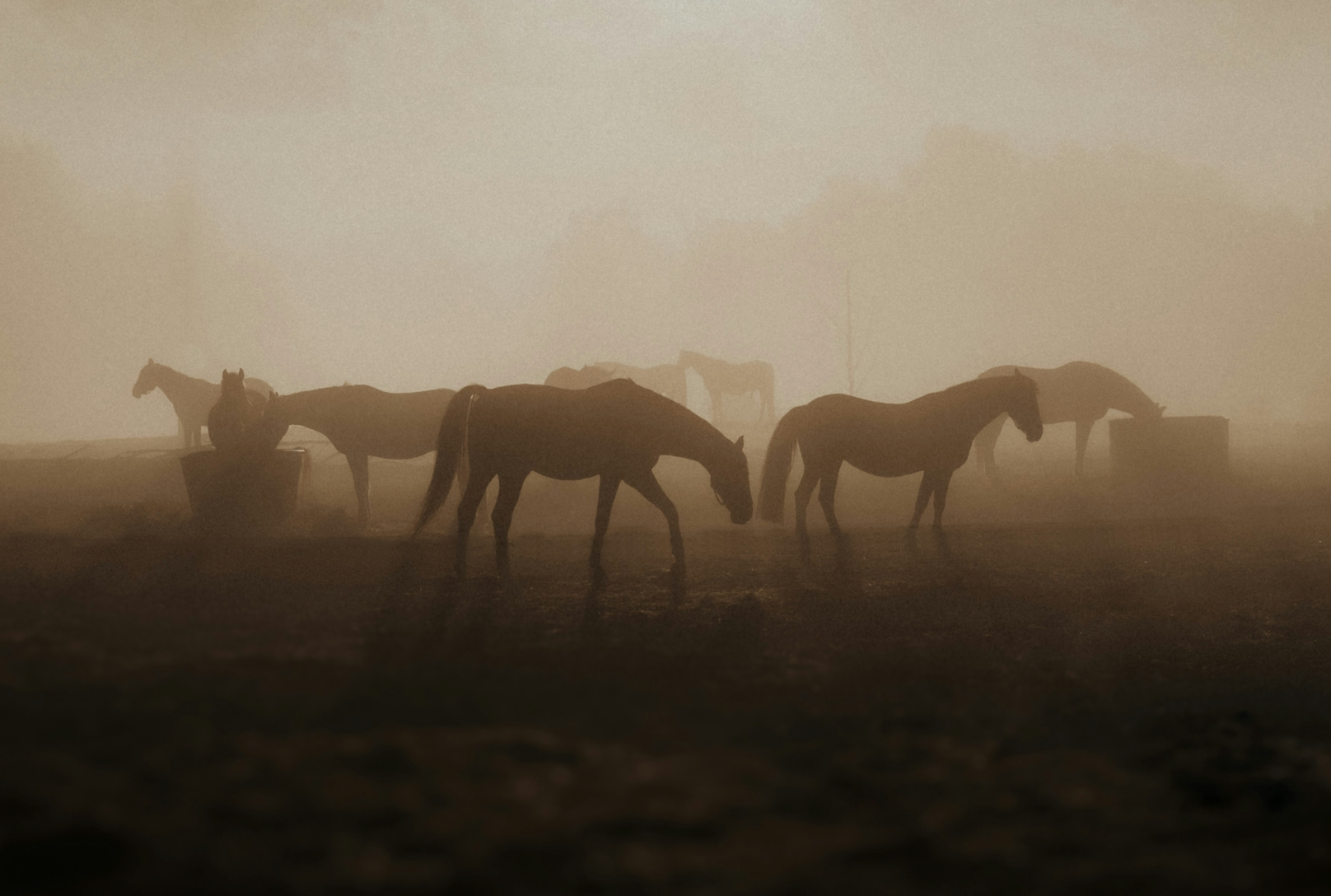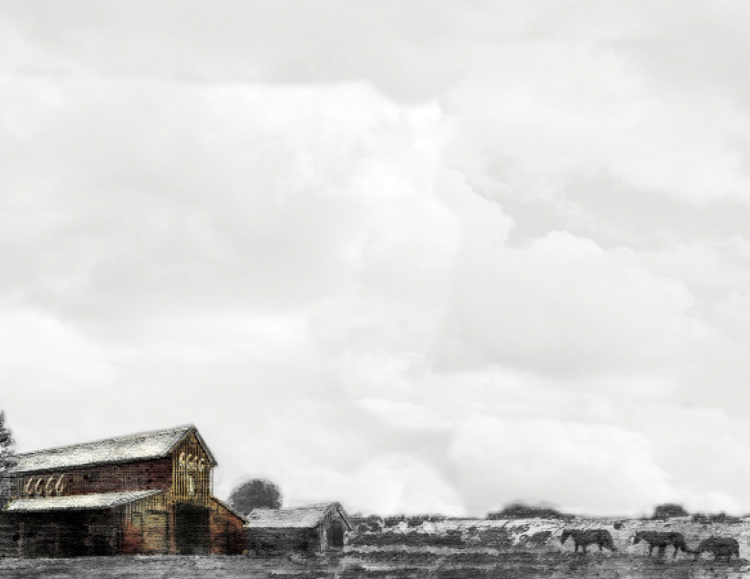Vitamins and minerals are a small but crucial part of every horse’s diet. In fact, these micronutrients are needed for many bodily processes that involve muscle function, bone health, hormone signaling, digestion, and more.
Unfortunately, due to the way we keep horses, they can become deficient in certain micronutrients, or nutrients that are needed in relatively small amounts, such as vitamins and minerals.
It’s important to note that there are some micronutrients that horses don’t need to obtain from their diet; instead, their body synthesizes them with the help of the diverse bacteria living within the large intestine. This would include certain B vitamins, vitamin K, and cobalt.
However, if a horse is not getting enough forage in their diet, or if they are under chronic stress from intense training, competition, or illness, their body may not be able to produce enough of these micronutrients to meet demands.
Of course, there are other micronutrients that horses must receive from their diet. High-quality forage and commercial feeds can help meet many of these requirements, However, horses in hard work, senior horses, or those that are pregnant or lactating, may need more than what forage and feed can provide. This is where high-quality multivitamins for horses can make a difference.
In this article, we’ll list some of the most commonly deficient vitamins and minerals in the horse’s diet and how you can ensure that your horse is getting enough of them. But first, let’s discuss what it is exactly that vitamins and minerals do.
The Role of Vitamins and Minerals
Vitamins play a role in nearly every physiological system in the body. For example, vitamin D plays a role in regulating bone turnover, while vitamin E serves as an antioxidant that protects almost all cells from damage. Vitamin K is involved in blood clotting, while vitamin A supports vision, immune function, and reproductive health.
Like vitamins, minerals also play a role in almost every physiological system from bone and joint health to muscle function and energy metabolism. Without adequate amounts of vitamins and minerals, our horses simply could not function.
The Most Commonly Deficient Minerals and Vitamins in the Horse’s Diet
The following vitamins and minerals are the most likely to become deficient in the equine diet.
B Vitamins
B vitamins consist of a group of water-soluble vitamins often referred to as the “B vitamin complex.”
This group of vitamins plays a role in performance, growth, reproduction, energy production, and immune function. The B vitamins are important for cell metabolism, as well as for processing protein, carbohydrates, and fats. They also play a role in nerve transmission and red blood cell production.
There are eight B vitamins that researchers have found to be important for the horse. They include:
- B1 (Thiamine) helps to break down sugars/starches and also plays a role in nerve function.
- B2 (Riboflavin) also helps to break down sugars/starches, as well as proteins. In addition, B2 aids in immune and nervous system function.
- B3 (Niacin) plays an important role in cellular function
- B5 (Pantothenic Acid) helps to break down fats and aids in protein synthesis and immune system function.
- B6 (Pyridoxine) plays a role in red blood cell and nerve cell function as well as energy production.
- B7 (Biotin) helps with the metabolism of fats, sugars/starches, and proteins. B7 also plays a role in cellular integrity. It is often associated with hoof and skin health.
- B9 (Folate) aids in red blood cell production and other cellular functions and is especially important during pregnancy and rapid growth.
- B12 (Cobalamin) serves many important roles such as fat, sugar/starch, and protein metabolism, blood cell production, and nerve cell function.
Vitamin D3
Vitamin D3 is technically a hormone which is produced in the body with the aid of sunlight. This vitamin is needed in sufficient amounts in order for calcium and phosphorus to be absorbed.
In fact, a deficiency can lead to failure of bones to calcify normally. If a horse gets adequate amounts of sunlight, this vitamin does not need to be supplemented. However, for horses living in northern latitudes, those that are kept stalled during the day, or even those that are kept blanketed for much of the year, a deficiency can occur, making supplementation necessary.
Vitamin E
This essential vitamin acts as an antioxidant that helps to maintain normal neuromuscular function. Vitamin E is abundant in fresh grass, but levels decrease once grass is cut and harvested as hay.
Vitamin E requirements also increase with exercise. Additionally, horses on a high-fat diet may need more of this vitamin to counteract the breakdown of higher amounts of fat by free radicals in the body.
Zinc
Zinc is an essential trace mineral needed to support enzymatic and protein function. It is also involved in antioxidant protection, immune function, protein synthesis, and cellular communication. Zinc is also important for bone development in foals and helps to support healthy hooves and skin. Finally, this mineral is critical for reproductive health as well as normal growth and tissue health.
Copper
Copper is another essential trace mineral needed to support many enzymatic functions. This mineral is important for iron metabolism, healthy connective tissue, energy production and antioxidant protection.
Both copper and zinc are commonly deficient in forages and may not be provided in high enough amounts in commercial feeds. For proper absorption, they need to be carefully balanced with one another, however. A 3:1 ratio of zinc to copper is recommended.
6666 Multi-Vitamin & Mineral
Multivitamins can play an important role in bridging the nutritional gap for many horses, but with all the supplements on the market, why choose 6666 Multi-Vitamin & Mineral? The answer lies in quality. Our multivitamin is formulated to balance the most commonly deficient vitamins and minerals in the equine diet using the most bioavailable and effective sources that are backed by research.
The 6666 Multi-Vitamin & Mineral contains all of the important nutrients listed above, plus several others that may be needed in higher amounts by hard-working horses. If you’re unsure whether your horse could benefit from a multivitamin, here is a checklist to help. Your horse may need supplementation if:
- They are not grazing on fresh pasture for most of the year.
- They are used for hard work/competition.
- They are a senior horse that may have trouble absorbing all nutrients consumed from forage/feed.
- They are at a life stage that requires higher amounts of nutrients (such as growing or pregnant/lactating).
Nearly every horse will need additional supplementation of vitamins and minerals at some point in their life. Multivitamin supplements for horses are meant to provide the micronutrients that are most commonly missing in the equine diet or those that may be needed in greater amounts by some horses.
By using a product such as the 6666 Multi-Vitamin & Mineral, you can help to ensure that all of your horse’s dietary needs will be met in one scoop a day!
Photo by 🇸🇮 Janko Ferlič on Unsplash


